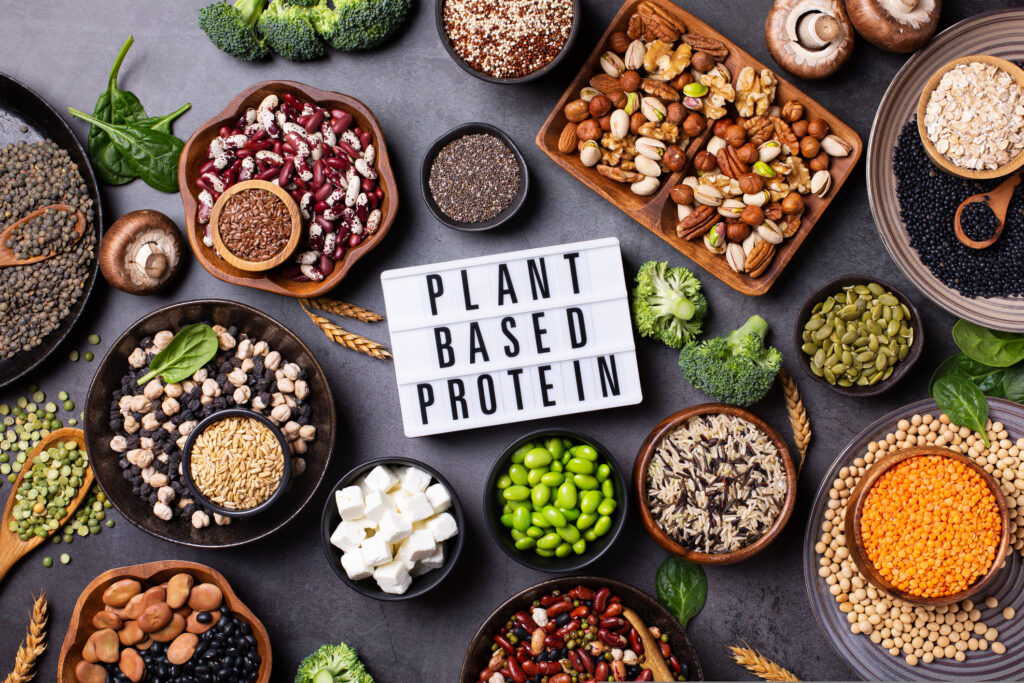Not All Proteins Are Created Equal


 Most of us are aware that protein is the building block for muscles. However, not everyone is aware that protein is made up of various amino acids, all of which have special functions in the body. Adding to the confusion, there are also many types of protein to chose from (whey, egg, brown rice, pea, soy, hemp, etc.) – all of which have different amino acid profiles. There are 21 standard amino acids, of which nine are considered essential in humans. Essential amino acids can’t be made by the body like other amino acids are, so you need to get them through diet or supplements.
Most of us are aware that protein is the building block for muscles. However, not everyone is aware that protein is made up of various amino acids, all of which have special functions in the body. Adding to the confusion, there are also many types of protein to chose from (whey, egg, brown rice, pea, soy, hemp, etc.) – all of which have different amino acid profiles. There are 21 standard amino acids, of which nine are considered essential in humans. Essential amino acids can’t be made by the body like other amino acids are, so you need to get them through diet or supplements.
Leucine Stimulates Muscle Protein Synthesis
In addition to being an essential amino acid, leucine (along with valine and isoleucine) is one of the key branched chain amino acids. While all branched chain amino acids are utilized for muscle growth and other purposes, leucine is the one that can directly stimulate muscle protein synthesis.
Whey and egg white protein have a higher content of leucine per serving than most other types, while hemp protein has the lowest content of leucine. Most products list the amino acid profile of that protein on the label.
Leucine stimulates the production of protein in skeletal muscle resulting in increased cellular energy. By increasing cellular energy metabolism, leucine supports the breakdown of fats for energy.
Increasing lean mass and decreasing fat mass is favorable for supporting many aspects of health and is the goal for most health-conscious people.
 Protein: It’s Not Just for the Gym
Protein: It’s Not Just for the Gym
Some people might think that they don’t need to worry about protein or amino acid consumption because they are not body builders or do not want to “bulk up”. However, muscle support is important for everyone, particularly for older individuals. Around age 40, the protein requirements increase (while calorie requirements stay the same or decrease) in order to combat age-associated muscle loss.
A leading cause of injuries in older adults is due to insufficient muscle. Lack of muscle strength makes you more prone to fall and have poor posture, both of which can lead to other major injuries. In athletes, protein and amino acids play a large role in recovery and avoiding injury.
Researchers compared post-exercise ingestion of amino acids (containing the amount of leucine similar to that found in quality protein) to leucine-enhanced amino acids. The results showed the potential importance of adequate post-exercise leucine ingestion to enhance recovery and preservation of muscle function.
 Is Your Protein Powder Sufficient?
Is Your Protein Powder Sufficient?
According to the American Diabetes Association, diabetes kills more Americans every year than AIDS and breast cancer combined. If the rate of increase in diabetes prevalence continues like it has been, as many as one in three American adults will have diabetes by the year 2050!
One of the underlying causes of diabetes is decreased insulin sensitivity (which is the culprit for elevated blood glucose). Leucine has been shown to alter insulin sensitivity which can lead to better glucose balance and support lean body mass.
The Bottom Line
Leucine can help support muscle recovery and maintenance, the body’s ability to use food as energy, and blood glucose regulation.
While all protein supplements contain leucine, it appears that additional enhancement of protein supplements with this amino acid makes them that much more effective.
Therefore, the branched chain amino acids, particularly leucine, could provide an added boost to one’s regimen.